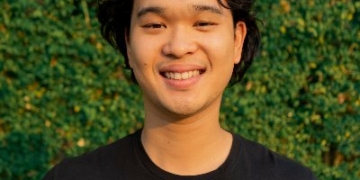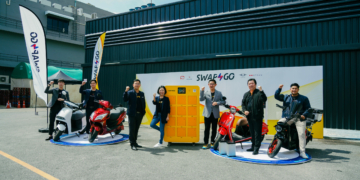For subscribers who may have seen our Quick Bites with Wing Vasiksiri on Instagram last week, this is a bigger bites edition where we covered more insights into Wing’s investment approach to Southeast Asian startups, as well as his views on how companies can tackle niches and grow in areas untouched by corporates.
A quick intro on Wing: Upon graduating from UC Berkeley, Wing worked at AngelList and co-founded iSeed SEA at age 23. Now, he’s the founder and general partner of Wing Ventures, a solo GP Seed Fund focusing on Southeast Asia based in Bangkok.
Last week’s insights on Instagram were Thailand-centric, and we covered ground on how Thai founders can look beyond their home market and how Wing hopes to see more innovation across areas in manufacturing, agriculture, and even fintech.
Now, onto fresh insights. We talked about how Wing scouts and invests in companies across the region and what he looks for in a founder. Wing enters startups early in the seed stage, where VCs give founders money to run experiments and test hypotheses.
“Through my network, I can do a deep enough level of due diligence on a company in Indonesia or Singapore but be based in Bangkok. A company needs to have strong core investors, and the founder has to have deep expertise in his field and the ability to execute his ideas.”
For Wing, there are some key differences between founders in Thailand and, say, Indonesia.
“In Indonesia, the second and third generation of business owners are starting their own companies on top of their family businesses,” he says. “One example is my portfolio company, Delos, which serves shrimp farmers and offers farming as a service by improving the yield and helping with exports. These businesses do not have to be purely tech but tech-enabled. The founder studied abroad and returned to leverage his family’s business.”
He hopes to see more of this opportunity seized in Thailand, where the country is laden with family-owned businesses across manufacturing and industries.
Beyond that, there are two key qualities Wing looks for in founders.
“The first thing for me is that when you sit down with a founder, they can articulate something that changes how you see the world. Experienced founders have a very clear why rationale, and they usually see a friction or a shift where they can create value in a particular space. Another is a founder who has been working in an industry, whether it’s packaging or logistics, and they can tell you an insight that changes how you view opportunity in that particular space.
Founder market fit is also important. What is it about a particular founder that makes it suitable for them to build a startup in a particular sector? They must know the space so well that it’s almost intuitive. For example, a founder with extensive experience in insurance would know exactly why a particular feature is needed to solve a very specific but valuable problem.”
These qualities contribute to speed, whatever gets them to build faster and understand the market quickly to go against incumbents.
“If a founder can articulate themselves well, it can take only 30 minutes to convey all that. For others, it might take a couple of calls. The objective of a first meeting with an investor is always to get that second meeting,” says Wing.
Scouting for founders across different markets can be challenging, but it’s all relative. Wing shared an insight with us that may also help you become a better founder or even angel investor.
“Founders only aspire to build a company bigger than the one in their regional city or state. Everything is relative. For example, a founder in Minnesota may aspire to build a 100 million dollar company, whereas the aim in SF it would be 100 billion. In Thailand, the scale would be significantly smaller than this.”
Wing recently co-published a report on Thailand’s startup ecosystem with Boston Consulting Group (BCG) and its technology division, BCGX.




